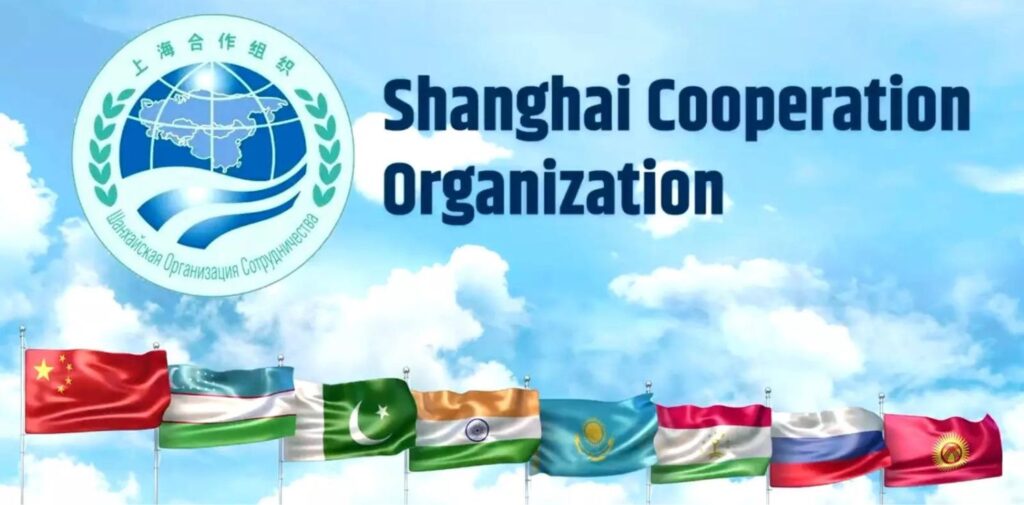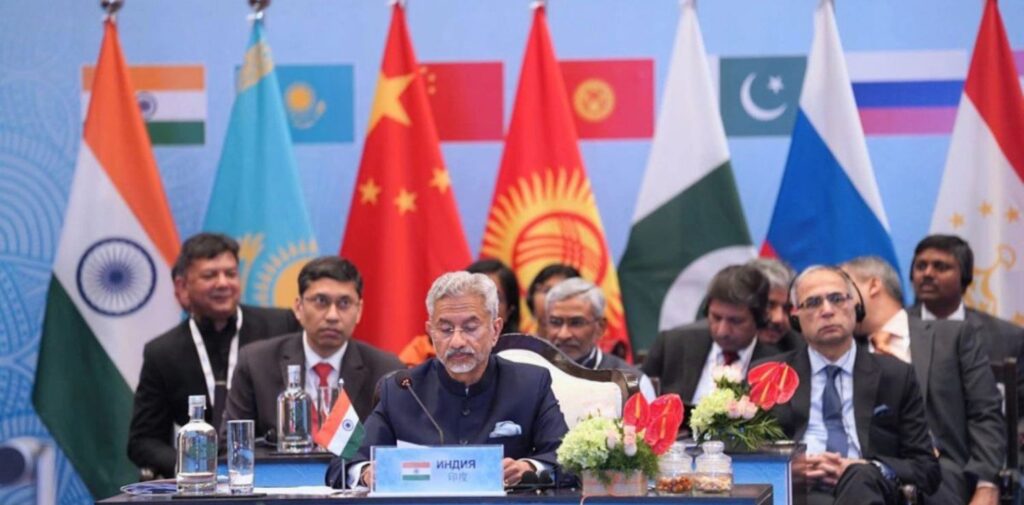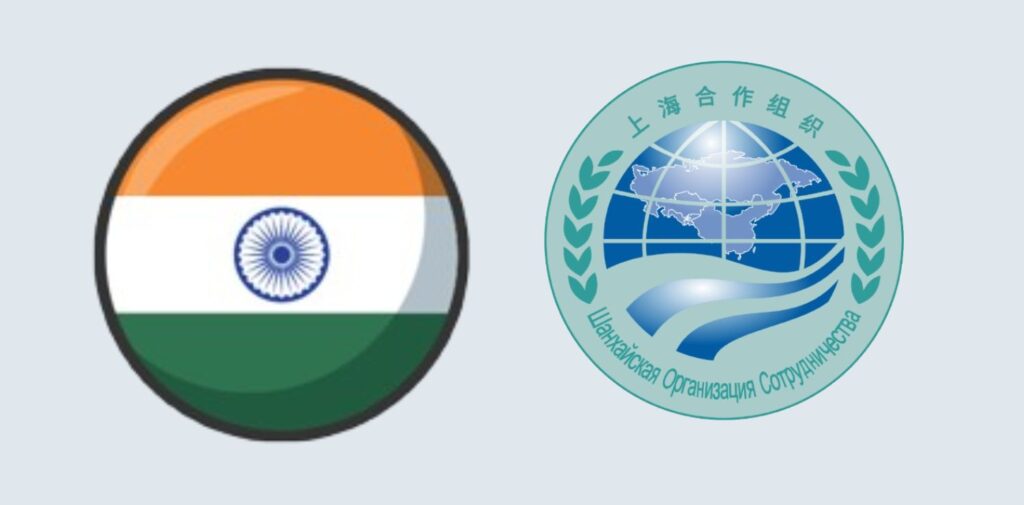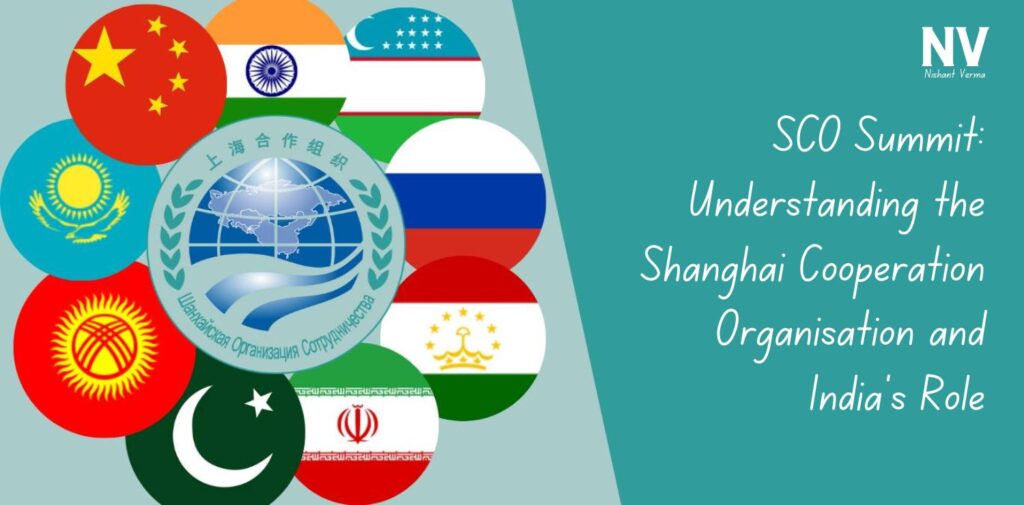What is the SCO?
The Shanghai Cooperation Organisation (SCO) is an international alliance that focuses on regional cooperation, security, and development. The organization was formed to foster mutual trust and friendship among its member states, promote political, economic, and cultural cooperation, and work together to address challenges like terrorism, extremism, and separatism.

Why Was SCO Formed?
The SCO was established on June 15, 2001, with the main aim of ensuring regional stability and enhancing cooperation among member countries. The organization originally emerged from the “Shanghai Five” group, which included China, Russia, Kazakhstan, Kyrgyzstan, and Tajikistan. This group was formed in 1996 to address border issues and reduce military tensions between China and its Central Asian neighbors. Later, when Uzbekistan joined in 2001, the group was renamed the Shanghai Cooperation Organisation.
The SCO’s primary goal is to ensure peace, security, and stability in the region. Over time, its focus has expanded to cover economic cooperation, cultural exchange, and people-to-people ties among member countries.
What is the Purpose of the SCO?
The SCO was established with the following purposes:
Strengthening Regional Security and Stability: The SCO aims to counteract terrorism, extremism, and separatism in the region. The member states work together to ensure that these threats do not undermine regional peace and stability.
Promoting Economic Cooperation: The organization fosters trade, economic partnerships, and investment opportunities. Member states collaborate on projects that contribute to regional development and economic growth.
Enhancing Cultural Ties and People-to-People Contact: The SCO also focuses on cultural exchanges, education, and tourism. This helps in promoting mutual understanding and friendship among the people of member countries.
Boosting Regional Connectivity: The SCO encourages connectivity projects such as infrastructure development, transportation links, and energy partnerships to strengthen ties among member countries.
Member States of the SCO
The SCO has eight member states, four observer states, and several dialogue partners.
Member States:
- China
- Russia
- India
- Pakistan
- Kazakhstan
- Kyrgyzstan
- Uzbekistan
- Tajikistan
- Observer States: Afghanistan, Belarus, Iran (soon to be a full member), and Mongolia.
- Dialogue Partners: Countries like Turkey, Sri Lanka, Azerbaijan, Armenia, Cambodia, Nepal, and others.
India’s Role in the SCO
India became a permanent member of the SCO in June 2017. This marked a significant development in India’s diplomatic and geopolitical positioning in the region. Before becoming a full member, India was an observer state in the SCO since 2005.

Why Did India Join the SCO?
India’s entry into the SCO was driven by several strategic and economic reasons:
Regional Stability and Security: Being part of the SCO allows India to collaborate with neighboring countries to address security challenges like terrorism and extremism. It provides India with a platform to voice its concerns and strengthen its counter-terrorism initiatives.
Energy and Economic Cooperation: The SCO region is rich in natural resources like oil, gas, and minerals. By becoming a member, India can explore opportunities for energy security and partnerships in the resource-rich Central Asian region.
Connectivity and Trade: The SCO offers a gateway for India to enhance trade and connectivity with Central Asia. This is crucial for India’s efforts to establish better trade routes and access new markets.
Strategic Balance: The SCO membership enables India to maintain a strategic balance with its neighbors, especially with China and Pakistan, both of whom are also members of the organization.
Cultural and Educational Exchange: The SCO provides a platform for promoting cultural ties and educational exchanges with Central Asian countries, which share historical and cultural links with India.
How Does India Benefit from the SCO?
Counter-Terrorism Cooperation: Through platforms like the SCO’s Regional Anti-Terrorist Structure (RATS), India works closely with other member states to combat terrorism, separatism, and extremism in the region. This cooperation is vital in addressing threats to India’s internal security.
Access to Central Asian Markets: The SCO membership allows India to engage with Central Asian countries, opening up avenues for trade, investment, and partnerships in sectors like energy, minerals, agriculture, and technology.
Enhanced Regional Influence: As a member of the SCO, India has a say in regional affairs and can influence decisions on important issues like security, economic cooperation, and connectivity. This enhances India’s role as a regional power.
Connectivity Initiatives: The SCO provides India with opportunities to explore connectivity projects like the International North-South Transport Corridor (INSTC) and other initiatives to boost trade and connectivity with Central Asia and beyond.
Promoting India’s Cultural Diplomacy: The SCO acts as a platform for India to promote its culture, education, and tourism, thereby strengthening people-to-people ties with other member states.

Challenges for India in the SCO
While India’s membership in the SCO has its advantages, there are also some challenges:
Differences with Pakistan: Both India and Pakistan are members of the SCO, and their bilateral tensions can sometimes affect the functioning of the organization. However, the SCO provides a neutral platform for both countries to engage in dialogue.
Balancing Relations with China: India’s relations with China, another key member of the SCO, have seen ups and downs, especially regarding border issues. The SCO serves as a platform for both countries to engage constructively, but balancing their strategic interests remains a challenge.
Geopolitical Competition: The SCO region is a hotbed of geopolitical competition, with China and Russia playing dominant roles. India needs to navigate this landscape carefully to safeguard its own interests while contributing to regional stability.
Recent Developments in the SCO Summit
The SCO summit is held annually, and it serves as a platform for member states to discuss pressing regional and global issues. In recent summits, discussions have focused on:
Countering Terrorism and Extremism: Member states have reaffirmed their commitment to fighting terrorism and enhancing regional security.
Economic Cooperation: Initiatives for economic cooperation, trade partnerships, and investment opportunities have been a significant focus.
Promoting Connectivity: The SCO continues to emphasize the need for regional connectivity projects, which are crucial for economic development and stability.
Addressing Global Challenges: Member states have also addressed global challenges like climate change, pandemics, and economic recovery in the post-COVID era.
Conclusion
The Shanghai Cooperation Organisation (SCO) plays a crucial role in promoting peace, security, and development in the region. India’s membership in the SCO has provided it with new opportunities for collaboration, economic growth, and strategic influence in Central Asia and beyond. While there are challenges, India continues to engage actively with other member states to strengthen its role in the organization and contribute to regional stability and prosperity. As the SCO evolves, India’s participation will remain essential in shaping the future of this dynamic and influential organization.




